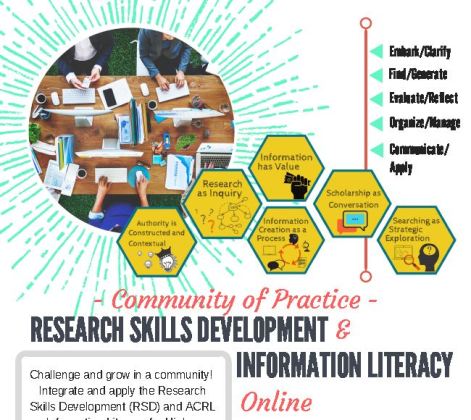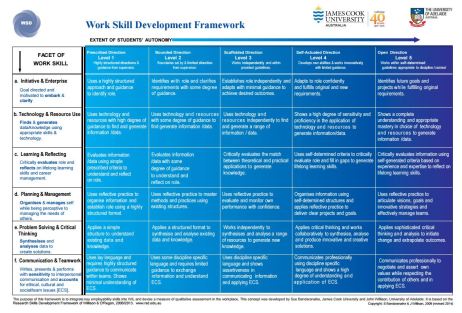For a number of years of I have taught a university-level, general education course with the aim to have students learn researching skills as part of a learning routine and a strategy used across various assignments in the course. I found the OPS (https://www.adelaide.edu.au/rsd/framework/simpler/) pentagon delineating research/problem solving skills to the perfect framework to underpin student’s research skills. The questions became, “How do I introduce the research process, and this framework, to the students”? I developed an activity that most undergraduate students could related to – panning a hike (See OPS Hiking WI Exercise). Throughout the semester I would link assignments back to the framework to indicate what portion(s) of the pentagon that we were using during any one assignment. This was an acceptable starting point. However, students never connected assignment activities to the OPS pentagon or to their larger education or life experience. The OPS pentagon was discussed in class. Students could use the terminology but with rare exception I was not convinced students “got it”.
Over the last week I tried something new. I added a second exercise asking to students to engage with the framework using the Crysatllizing Connections Observation Worksheet In addition to the hiking exercise I broke the students into 6 groups. I assigned each of the groups one of the OPS facets to examine. I began by asking each of the groups to brainstorm examples of their assigned facet. Over the course of the next few days students were instructed to collect examples of their assigned facet when they were sitting in their courses. After several days students were re-grouped so that there was a person in each group that represented each one of the six facets of the OPS pentagon. Individually each of the group members completed the chart as they listed to other group members explain what they had observed relative to their assigned facet.
I asked students what insights they had gained over the past few days from relative to this exercise. So far the results seem promising with insights such as:
- the categories of the OPS mix together
- all professors use elements of the OPS
- I can process the OPS and use it in my other classes
- helps teachers sort through learning
- we use the OPS without realizing it
Do any of you have strategies that you have found work in your classrooms? I would be interested in hearing about them. Let me know!
Sylvia


